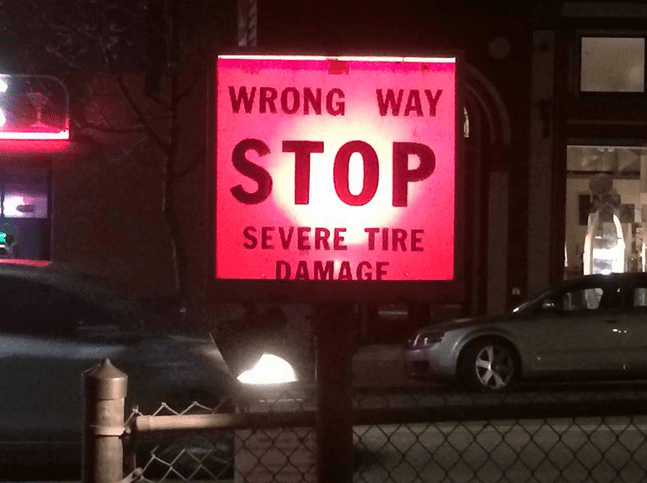Last week one of my readers invited me to participate in the ‘Wear Pants to Church’ Sunday campaign. She gave me a link to the Facebook page so I could get a sense of what this was all about. I smiled to myself and thought it sounded like a bit of a giggle. And then I clicked on the link to the Facebook page – and wouldn’t you know it, it felt like the night of the US Presidential Elections again, except this time worse – much, much worse. The vitriol was difficult to read, the spite and hatred was meteoric, and left me shaking my head in wonder. Seriously!? A campaign for women to demonstrate their resistance to a certain representation of the ideal Mormon feminine was met with a level of meanness that that made it almost unreadable – and I’m usually up for anything! In any event Facebook shut the site down because of death threats, one from a BYU student (Travis James Richardson to be exact) who suggested that these ‘minority activists’ (those who wanted to raise questions about gender inequality in the church) ‘needed to be shot in the face – point black’.
And now its Sunday morning in New Zealand and I’m debating with myself whether or not I will wear pants to church today, and whether it really matters after a weekend of unsuccessfully trying to make sense of a senseless and horrific shooting at an American elementary school, and a mass stabbing at a school in China. I suppose I could talk about US gun laws, and the plight of disturbed young men, oppressive patriarchal regimes, and the insanity of violence as a solution for even those most innocuous of challenges to the ‘order of things’.
But this Sunday morning, as I prepare for my penultimate Gospel Doctrine lesson for the year, I want to talk about how it all ends.
This year there have been two touchstones in our Book of Mormon discussions that have stood out as the most topical; Clothing (as a sign of class inequality), and violence (as a final solution to that inequality). These issues have prompted the most exercised of class responses to our contemporary social arrangements. A few weeks back, we considered how diverse Meso-American populations with long held animosities, political, social and cultural differences, were going to peacefully occupy the same space. Because the message of the Book of Mormon is clear that the nature of an entirely secular existence is such that the final solution to our differences will always, must always be mutual annihilation. And the only remedy is cultivating the language of the spirit.
I’m certainly not wholly conflating the language of the spirit with the language of the institutional church, although I do think as churched folk we are given the tools to apprehend and translate the language of the spirit, but it would appear that even our church language can become secularized (as in the case of the vitriol surrounding Pantsgate 2012). The cultivation of a vibrant, mature, calming, peaceful and centred spiritual life sometimes has to happen in spite of, or independent of a particular religious orientation because it forces us to face up to our spiritual being in a world of complexity and pain. A world that calls for our active presence in , not our abandonment and refusal of that world. A case in point:
Two years ago a Christchurch couple lost their 4 year old son when a young man floored his car through a corner, mounted the footpath and hit Emma and her two children Jacob and Nayan who were walking home from Eastgate Shopping Mall. Young Nayan died at the scene. What resulted was something extraordinary. While the media crucified 17-year-old Ash Austin, calling for his incarceration, Duncan and Emma Woods chose to forgive, and spoke out at publically at the futility of sending Ash to prison – for which they received some misguided criticism. Duncan’s response was as follows:
Many people make assumptions that our “forgiveness” comes out of a Christian faith. I wish I had such faith. I believe in no god and that there will be no reunion with my son at the pearly gates. With no faith I can not allow anger to invade me and spread those feelings through my already reeling family under the belief that we all end up okay for eternity anyway. I don’t have this luxury of a belief structure. My behaviours are not directed in the best interest of the man who impacted my life so severely, but at the life that remains. I don’t believe that anything I do matters to Nayan, but I know it does to Jacob. So I conduct myself with grace, I find forgiveness (it is genuine), I let go of anger and hatred so that I don’t be a contagion of these things for my living son. My actions are not noble, they are born of what I believe are the best things I can do for him.
A centered spiritual life looks beyond the present and asks, ‘how will it end?’ How will it end for me, for my family, for my community and indeed for the world? From a contest over clothing, to brutal social violence, our current social course seems to be all-symptomatic of a human failing to privilege grace over nature.
Will it end with the reproduction of all of our cultural norms, folkways and mores intact? If so, the Book of Mormon makes clear that the compounding interest on ‘business as usual’ is ultimately too high a price to pay. We are finally called to a life of spiritual integrity, where all parts of ourselves work in a harmony with each other. Where the admonishment to be people of grace bears itself out in our personal as well as our political yearnings. Where our churched spaces are characterized not only by the spiritual animation that is a central tenant of the religious life but also by a daily and public life that mirrors that animation. Where we, on a daily basis, powerfully catalyze social and cultural transformation – because our vision and hope in a joyous end is more potent and motivating than our yielding to the inevitability of the final grisly, brutal apocalyptic downfall of the human race?
This Sunday women in the church across the United States will wear pants to church, Sandy Hook parents and families will wail with unrestrained grief at their shocking losses, parents in China will keep vigil at the hospital beds of their lacerated children, incendiary bombs may go off in Syria, Egypt’s divisive constitutional reforms may incite more fatal demonstrations. And while there are many words that might critique, analyse and argue these issues, I feel convinced that only the language of the spirit will help us resolve, heal, and powerfully transcend this moment and bring us to a place of hope and peace where the end is more than the beginning. How will it end? I don’t know, but today, and everyday I can live as if the end is up to me.











